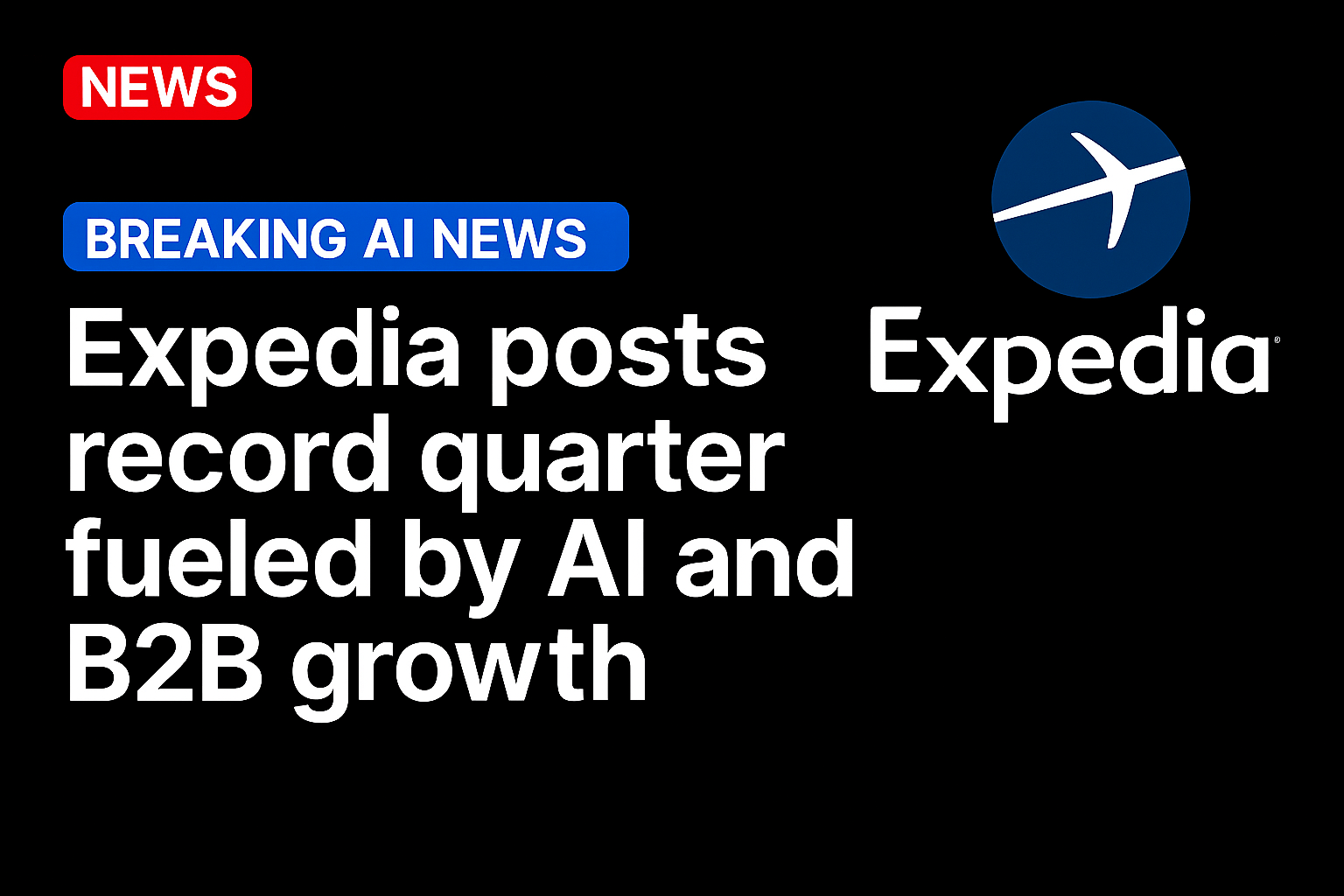
Expedia Group said its third-quarter results topped expectations as artificial intelligence (AI), automation, and partner connectivity helped the company capture growing global demand for travel. The results marked the strongest momentum in more than three years and prompted management to raise full-year guidance. CEO Ariane Gorin told analysts the company’s technology systems now operate as a “connected layer” linking travelers, supply partners, and data insights across every part of the booking journey.
Gross bookings rose 12% to $30.7 billion, while revenue increased 9% to $4.4 billion. The company pointed to higher lodging and air prices, an improved demand environment and continued gains in marketing efficiency. Free cash flow reached $3 billion, and Expedia ended the quarter with $6.2 billion in cash and short-term investments, a sign of operational discipline even as it invests in automation.
AI-Enhanced Travel and Consumer Growth
AI now sits at the center of Expedia’s travel ecosystem, shaping how customers search, plan and book trips. The company said intelligent recommendation models and new design updates have made search results and trip planning more personalized, while automated review summaries and property comparisons are helping travelers make faster decisions.
These AI-powered changes, introduced gradually across Expedia, Vrbo and Hotels.com, have led to double-digit growth in vacation rentals and record attach rates on ancillary services such as insurance and add-ons. Gorin said the company’s focus on automation allows Expedia to anticipate traveler intent in real time, a shift that is making its marketplace “smarter, faster, and more reliable.”
Consumer bookings rose 7% year over year, led by double-digit growth outside the United States and particular strength in Europe. Hotels.com and Vrbo both returned to sequential growth, while the Expedia brand continued to lead overall volume. Loyalty adoption under the One Key rewards program expanded in parallel, with more travelers booking directly through the platform to access member rates and cash-back rewards.
Gorin said partnerships with major technology providers such as Google, OpenAI and Perplexity are helping Expedia adapt to emerging travel discovery patterns. The company has been working on answer-engine optimization, ensuring its brands appear prominently in conversational search environments powered by large language models. She further added that, “AI provides an opportunity for step function improvement in our teams’ efficiency and effectiveness over time. We’re already seeing the benefits in our product, technology and customer service teams.”
B2B Expansion and Platform Efficiency
The B2B segment remained one of Expedia’s strongest engines of growth, the company said. Bookings increased 26% and revenue rose 18%, extending the company’s streak of 17 consecutive quarters of double-digit expansion. The Rapid API platform, which connects Expedia’s lodging supply to other travel platforms, was the fastest-growing product and a major contributor to the quarter’s results.
The company’s travel-agency solutions business also grew 25%, surpassing $3 billion in bookings year to date, as agencies adopted new automation tools for rate management and trip planning. Advertising revenue climbed 16% from a year earlier, supported by AI-based targeting that helped partners improve return on spend.
CFO Scott Schenkel said Expedia’s cost base continues to benefit from automation across sales, marketing and support. Direct sales and marketing expenses fell 4% in the consumer segment, and cost of revenue declined 3% thanks to process automation in payments and customer service.
Travel demand held strong through October, supported by longer booking windows and steady consumer confidence across income groups. Schenkel said premium travel continued to perform well while value-oriented segments remained resilient, helping sustain global occupancy trends.
The company’s raised guidance, reflects confidence that its AI-enabled infrastructure and marketplace automation can continue to expand without adding significant overhead.
Topline Results
Expedia reported 9% year-over-year revenue growth to $4.4 billion and 12% growth in gross bookings to $30.7 billion, its strongest quarterly increase in over three years. Gains were driven by higher lodging and air prices, a favorable tailwind, and solid demand across both consumer and partner channels.
Booked room nights rose globally, with the United States posting its fastest growth since 2022, low double-digit gains in EMEA, and more than 20% growth in Asia. The company said longer booking windows and extended stays reflected stronger traveler confidence across both premium and value segments.
B2C gross bookings were up 7%, while revenue rose 4% supported by steady lodging and advertising demand. B2B gross bookings increased 26%, with revenue up 18% as travel-agency partners adopted new automation and API tools. Advertising and media revenue climbed 16%, boosted by higher participation and improved AI-driven targeting.
Expedia returned $451 million to shareholders through the repurchase of 2.3 million shares, continuing a three-year program that has reduced its share count by more than 20%. The company ended the quarter with $6.2 billion in cash and said it will maintain a similar pace of buybacks.
For the fourth quarter, Expedia expects gross bookings and revenue to rise between 6% and 8%. Full-year 2025 guidance calls for bookings’ growth of about 7% and revenue growth of 6% to 7%, reflecting confidence in sustained demand and continued leverage from automation.
Source: https://www.pymnts.com/




